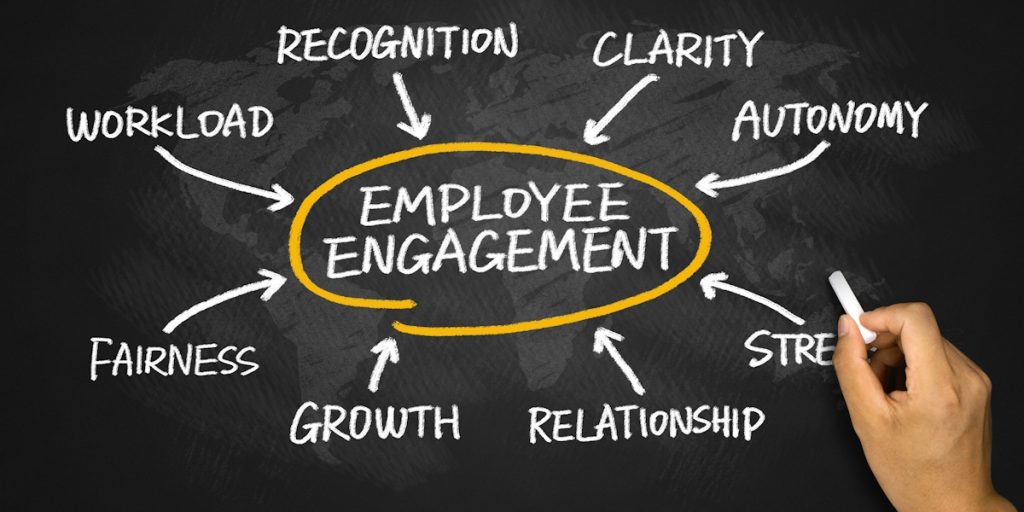Employee recognition plays an essential role in fostering motivation, engagement, and well-being in the workplace. When organizations emphasize the importance of recognition, they create an environment that helps reduce burnout, boosts job satisfaction, and keeps employees engaged. In this blog, we’ll explore the role of recognition in employee motivation and its profound effects on combating employee burnout and improving overall employee engagement.
How Recognition Reduces Burnout?
Employees today face burnout as one of the most significant challenges. When employees feel overworked and underappreciated, stress levels rise, leading to burnout and disengagement. By incorporating recognition into the work culture, organizations can significantly reduce these negative outcomes.
The Impact of Recognition on Burnout
- Prevents Emotional Exhaustion: When employees’ hard work is recognized, they experience less emotional fatigue, which is a key aspect of burnout. They feel valued, which in turn lowers feelings of being overwhelmed.
- Reduces Stress Levels: Regular recognition boosts employee morale and helps reduce stress, a primary cause of burnout. The acknowledgment of achievements fuels positive emotions, alleviating feelings of pressure.
- Improves Resilience: Employees who feel appreciated are more resilient to workplace challenges, as they know their contributions are valued, even in tough times.
Key Benefits of Recognition in Reducing Burnout
- Increased motivation: Recognition fuels employee motivation, helping them push through tough projects without losing steam.
- Improved mental well-being: Feeling appreciated leads to a more positive mental state, helping employees manage stress more effectively.
- Higher retention rates: Employees are more likely to stay with a company that values their efforts, reducing turnover caused by burnout.
Employee Burnout Prevention Strategies
A robust employee recognition program is essential in addressing and preventing burnout in the workplace. It’s not just about offering awards or rewards, but also about fostering a culture of acknowledgment and appreciation. When employers recognize employees for their hard work, employees are less likely to experience burnout.
Effective Strategies to Prevent Burnout Through Recognition:
- Frequent Feedback: Instead of waiting for annual reviews, provide feedback and recognition regularly. Recognizing employees’ efforts in real-time motivates them and reduces stress.
- Personalized Recognition: Understand the preferences of your employees and offer personalized recognition. This shows you genuinely care about their contributions.
- Public Acknowledgment: Publicly celebrating an employee’s achievements boosts their morale and creates a culture of appreciation within the team.
Workplace Recognition Benefits
Recognition not only reduces burnout but also enhances employee well-being, engagement, and job satisfaction. Employees who feel recognized are more likely to invest emotionally in their work. This can have a positive impact on both productivity and the overall culture of the organization.
How Recognition Improves Employee Engagement
- Increased productivity: Engaged employees who feel valued tend to go above and beyond their usual tasks, improving productivity.
- Enhanced teamwork: Recognition fosters collaboration. When employers recognize employees, they become more inclined to collaborate and help their peers.
- Improved company culture: A company culture that emphasizes recognition is one where employees feel supported and motivated to perform at their best.
Psychological Benefits of Recognition:
- Reduces stress: Regular recognition diminishes stress levels, which in turn reduces the chances of burnout.
- Boosts self-esteem: Employees who are frequently recognized experience higher self-worth and satisfaction in their roles.
- Promotes happiness: Feeling appreciated fosters a positive emotional connection to the workplace, leading to greater happiness and job satisfaction.
Explore The Psychology Behind Effective Employee Engagement Programs and understand how they can enhance your workplace culture.
Employee Recognition and Motivation: The Connection
Recognition plays a direct role in motivating employees and engaging them. A well-designed recognition program can trigger intrinsic motivation, making employees more committed to their roles and goals. When employees feel that others notice their contributions, they develop a sense of purpose that drives them to achieve even more.
The Impact of Recognition on Job Satisfaction:
- Greater job satisfaction: When employees are acknowledged for their efforts, they experience increased job satisfaction, as they feel their work is meaningful.
- Increased loyalty: Employees who are recognized regularly are more likely to remain loyal to the company and less likely to seek other job opportunities.
- More innovative ideas: Recognition boosts confidence, inspiring employees to bring new ideas to the table and contribute creatively.
The Psychological Effects of Workplace Recognition
Understanding the psychological effects of workplace recognition is key to unlocking its full potential in enhancing employee engagement. Recognition provides validation, making employees feel that their hard work is meaningful. It also creates a sense of pride in their work, improving their mental and emotional well-being.
Key Psychological Benefits of Recognition:
- Increased motivation: Acknowledgment of effort triggers the release of dopamine, which boosts motivation and happiness.
- Sense of accomplishment: Employees who are recognized for their achievements feel more fulfilled and motivated to continue performing at a high level.
- Reduced feelings of isolation: Recognition helps employees feel like they belong, combating feelings of loneliness and disengagement in the workplace.
Implementing Innovative Employee Recognition Ideas can enhance the psychological well-being of employees, boosting motivation and workplace morale.
Employee Recognition Programs: Solutions for Employee Disengagement
Lack of recognition and appreciation often causes employee disengagement. Without recognition, employees may feel that their work goes unnoticed, leading to disconnection from their roles and responsibilities. Implementing an effective recognition program for employees can be a powerful solution to this issue.
Building Effective Recognition Programs:
- Make it frequent: Recognition should be a continuous process, not just a one-off event. Recognize achievements regularly to keep employees motivated.
- Encourage peer recognition: Peer-to-peer recognition builds camaraderie and fosters a positive work environment where everyone feels appreciated.
- Provide tangible rewards: While recognition doesn’t always need to be monetary, offering rewards like gift cards or extra time off can further motivate employees.
The Role of Recognition in Employee Well-being and Engagement
By now, it’s clear that recognition plays a crucial role in both employee well-being and employee engagement. Companies that fail to recognize their employees risk high turnover rates, low morale, and decreased productivity. On the other hand, organizations that prioritize recognition see tangible benefits in the form of increased engagement, motivation, and satisfaction.
The Importance of Recognizing Employees:
- Strengthens employee loyalty: Recognition fosters a sense of belonging, making employees more likely to stay with the company long-term.
- Improves organizational performance: Engaged and motivated employees perform better, contributing directly to the company’s success.
- Enhances employee health: Regular recognition reduces stress and improves both physical and mental well-being.
Learn more about how Recognition Programs Foster Employee Loyalty and Engagement can help build a more dedicated and motivated workforce.
Conclusion: Invest in Employee Recognition Today
In conclusion, the role of recognition in employee motivation is vital for the success of any organization. By reducing burnout, improving engagement, and enhancing overall job satisfaction, recognition programs benefit both employees and employers. If you’re looking to improve employee well-being, prevent burnout, and boost motivation in your company, investing in an effective recognition program is the key.
At IncentivAction, we specialize in creating tailored employee recognition programs that align with your company’s values and goals. Our expert consultancy services can help you implement a recognition strategy that drives employee engagement, reduces burnout, and creates a positive workplace culture. Contact us today to learn how we can help your organization thrive through recognition.
Is Your Workplace Recognition Strategy Truly Reducing Burnout and Boosting Engagement?





